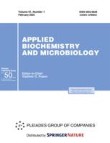
Abstract
Ajuga turkestanica (Rgl.) Briq. (Lamiaceae) callus cultures were obtained from a wild plant, and the morphogenesis processes in these cultures were studied. It was possible to obtain gemmogenesis or rhizogenesis in the first six to eight growth cycles, depending on the hormonal composition of the medium; the capacity for morphogenesis was lost after 10–15 growth cycles. Suspension cell cultures were initiated from some calluses with strong growth. As a result, about 100 calluses and suspension plant cell lines of A. turkestanica were obtained; a number of them were characterized in terms of growth rate and were analyzed via HPLC-MS for the presence of phytoecdysteroids. 20-Hydroxyecdysone and turkesterone were found in most of the studied lines; the content of the first compound in the most productive lines was 30–50 times higher than in the second (2.0–2.5 mg/g versus 0.04– 0.05 mg/g dry weight, respectively). An increase i n the phytoecdysteroid content in plant cells cultured in vitro was observed by the end of the growing cycle. However, phytoecdysteroids were not found in many of the obtained plant cell lines. Further research is needed to clarify the causes of the presence or absence of phytoecdysteroids in A. turkestanica plant cell cultures.



Δεν υπάρχουν σχόλια:
Δημοσίευση σχολίου
Σημείωση: Μόνο ένα μέλος αυτού του ιστολογίου μπορεί να αναρτήσει σχόλιο.